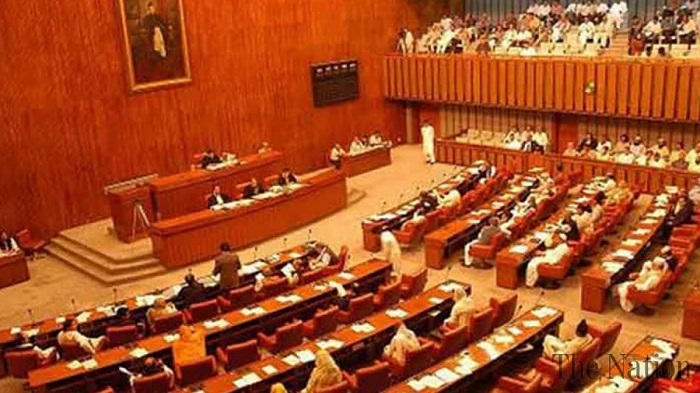ISLAMABAD: The Senate passed a resolution on Monday condemning a “systematic push” to promote the presidential style of government in Pakistan, saying that such a move would have “disastrous implications” for the nation.
The Senate resolved to “preserve and defend the parliamentary system of government as envisioned in the 1973 Constitution” through a resolution sponsored by Pakistan Peoples Party (PPP) Senator Raza Rabbani on behalf of members from practically all opposition parties sitting in the house.
The House passed the resolution since no treasury members objected. Dr Shahzad Wasim, the Senate’s Leader of the House, stated unequivocally that the government had no involvement in the country’s ongoing debate over the presidential system, but added that the presentation of this resolution, which he believes will strengthen those forces behind such a campaign, was unnecessary.
He also obliquely chastised the mainstream media for taking up on problems expressed on social media, claiming that the Senate should not have been involved in such discussions.
Members of the united opposition have also filed a similar resolution to the National Assembly Secretariat, stating their determination to maintain and improve the country’s federal parliamentary system, as stipulated by the 1973 Constitution.
The opposition parties had earlier claimed that the ruling Pakistan Tehreek-i-Insaf was behind such a “campaign” in order to divert public attention away from the government’s failures on all fronts.
Minister for Information Fawad Chaudhry strongly denied this view, calling the speculation of an emergency or presidential style of government a part of the country’s “false news culture” owing to some YouTubers and V-loggers.
The vision of Quaid
According to the Senate resolution, “a systematic campaign in a section of the media and social media is being run to undermine the federal parliamentary form of government,” recalling that Pakistan’s founding father, Quaid-i-Azam Mohammad Ali Jinnah, envisioned a federal parliamentary form of government.
The senate also remembered Pakistan’s people’s unwavering effort and sacrifice for a federal parliamentary system of governance. The Senate recognises Pakistan as a participatory federation and “emphasises that the 1973 Constitution envisions Pakistan as a federation with a parliamentary system of government, trichotomy of power, judiciary independence, province autonomy, and fundamental rights for its inhabitants.”
It claims that a presidential style of administration will usher in a “unitary form of governance in which the entire constitution will be rewritten.”
The Senate cautions that “given intra-provincial and federal province polarisation, internal political instability, regional circumstances, and international ambitions to colonise Pakistan, a national consensus on a new constitution will be unachievable.”
Sherry Rehman, the PPP’s legislative leader in the Senate, had earlier called for the resignation of Khyber Pakhtunkhwa Governor Shah Farman over his purported support for the country’s presidential system of government in a statement.

Mr Farman allegedly suggested at a recent gathering that Pakistan would be better managed under a presidential system rather than the existing parliamentary one. He had stated that the presidential system would eliminate corruption and empower the federating units.
Sherry Rehman has requested the federal government to clarify its stance in the aftermath of the governor of KP’s “unconstitutional and undemocratic comments.”


